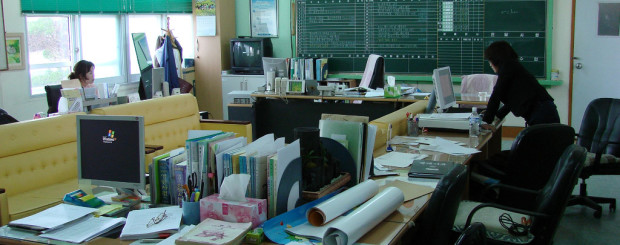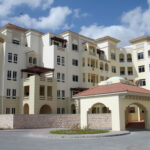Teaching in Dubai – An Expat’s Guide
As Dubai continues to thrive, both as a social and business hub in the Middle East region, more expat families are attracted by the unique lifestyle experience the city has to offer; with the increasing number of children coming to Dubai, teaching in Dubai is a profession that is on the rise and in demand. With the economic boom, the education system in Dubai is experiencing tremendous growth propelled by an exponential demand for quality teachers in the emirate.
The educational system in the UAE is overseen by the Ministry of Education (MoE), which governs both government as well as private education in the country. While the MoE does not set the curriculum for private schools, with the exception of Arabic and Islamic Studies, it does set out guidelines for school days and holidays, teacher qualifications as well guidelines on school transfers. Local educational councils, under the guidance of the MoE have been set up in each of the seven emirates and are responsible for carrying out the MoE’s mandate. In Dubai, the KHDA (Knowledge and Human Development Authority) is responsible for regulating the growth, direction and quality of education from early childhood to adult learning stage. Earlier this month, the KHDA estimated that 60 new schools will be required to be established in the next five years to meet the increasing demand for education in the emirate; this translates to a significant increase in the demand for qualified teachers in the emirate.
What to expect as a teacher in Dubai
Teaching in Dubai can be both rewarding as well as frustrating at times; many teachers have varying personal experiences based on their individual teaching environments, which vary tremendously with the type of school curriculum they teach in.
- As Dubai is home to a huge expat population (more than 70% of Dubai’s residents are expats), most schools cater to a different mix of nationalities, many of whom can speak English at varying levels of proficiency. For some, the challenge of working with students from different backgrounds can be a rewarding and enriching experience; for others, it may mean that some teachers need to put in extra work and effort to ensure that all the students in the class are receiving the same level of education.
- There are many different school curriculums that cater to the wide variety of nationalities represented by the expat population. Amongst the most common are the British, American, Indian and Philippine schools with a smattering of Australian and Canadian schools and a few IB (International Baccalaureate) curriculum institutions. Most Western curriculum schools have stricter standards of acceptance for qualified teachers and better pay packages that may include a housing allowance (not very common), medical insurance, yearly flight tickets to go back to your home country as well as an end of service gratuity, much like a retirement bonus. Pay scales are also higher in these schools and can range from AED 8,000 to AED 14,000 monthly. In schools with Asian curriculums such as Philippine, Indian and Pakistani schools, the pay packages are often less attractive. It is therefore unlikely that you will be able to sustain living in Dubai only on a teacher’s salary.
- In Dubai, there are two primary types of contracts: local and international. If you are the spouse of an internationally hired employee who already gets benefits from their employer, your visa is likely to be stamped with a ‘housewife’ visa and you will receive these benefits as a part of your spouse’s package. Salaries for trailing spouses are often lower, even if they work as hard as their international counterparts. The main advantage is that most schools will look to hire teaching staff on a local contract to minimize their expenses; therefore you will probably be ahead of the competition when it comes to getting hired as the major expense the school has to bear is just the cost of the labor card. This can be very frustrating and often de-motivating for teachers.
- Running a school is a business and most schools are looking to make a profit. Cost cutting measures implemented in schools can be de-moralizing for many teachers and often result in a compromise in the quality and level of education. Class sizes are usually quite high and school resources are often stretched to their limits in an attempt to cut costs. On the face of things, schools may seem to have large budgets and impressive resources at hand, but this is often found to be quite an exaggeration. This is a part of academic life in Dubai and is something you will need to get used to.
- Expectations of most teachers are very high; although the education system in the country is still being developed and teaching standards and practices have yet to be standardized, teachers are pressured to compete with international levels of education and are expected to conform to school standards with very short settlement periods. Special needs education in the country still leaves much to be desired and this is an area of education that the KHDA will apparently be focusing on in the near future.
- Your nationality will determine your level of pay; even if you do have the same qualifications as another teacher from a different country, it is likely that you will be paid according to the country on your passport. Although qualifications do, in-part, determine how much you will be paid, there can be vast differences in salaries across schools. Although, most teachers find that they are paid as well as a teaching job would pay in their home countries, whether from India, the UK or South Africa, pay is still scaled according to each of these currencies.
- One thing most teachers find difficult to come to terms with is the attitude towards educators. While many people do respect that teaching is a noble profession, others feel that teachers should be available on demand for criticism and accountability every step of the way. This can take the joy out of teaching for many here and unfortunately, school management is not always supportive of the teacher, particularly if the student or parents in question are influential or affluent. If you want to teach here, it is important that you have a very positive attitude and lots of patience when dealing with students and parents alike.
- Schools typically open early here at 07.30 a.m. or 08.00 a.m. and close by 14:30 or 15:00 p.m. There is a one hour lunch break and the work week is from Sunday to Thursday with Friday and Saturday constituting the weekend.
- Your chances of getting a job greatly increase if you apply to schools which offer the same curriculum as the country from which you received your educational qualifications.
To summarize, the educational environment in Dubai can be challenging for teachers who are expected to juggle a class of several nationalities who speak many different languages and varying degrees of English. However, other teachers can often provide a supportive environment and if you get a job in a good school, teaching in Dubai can be an rewarding experience.








